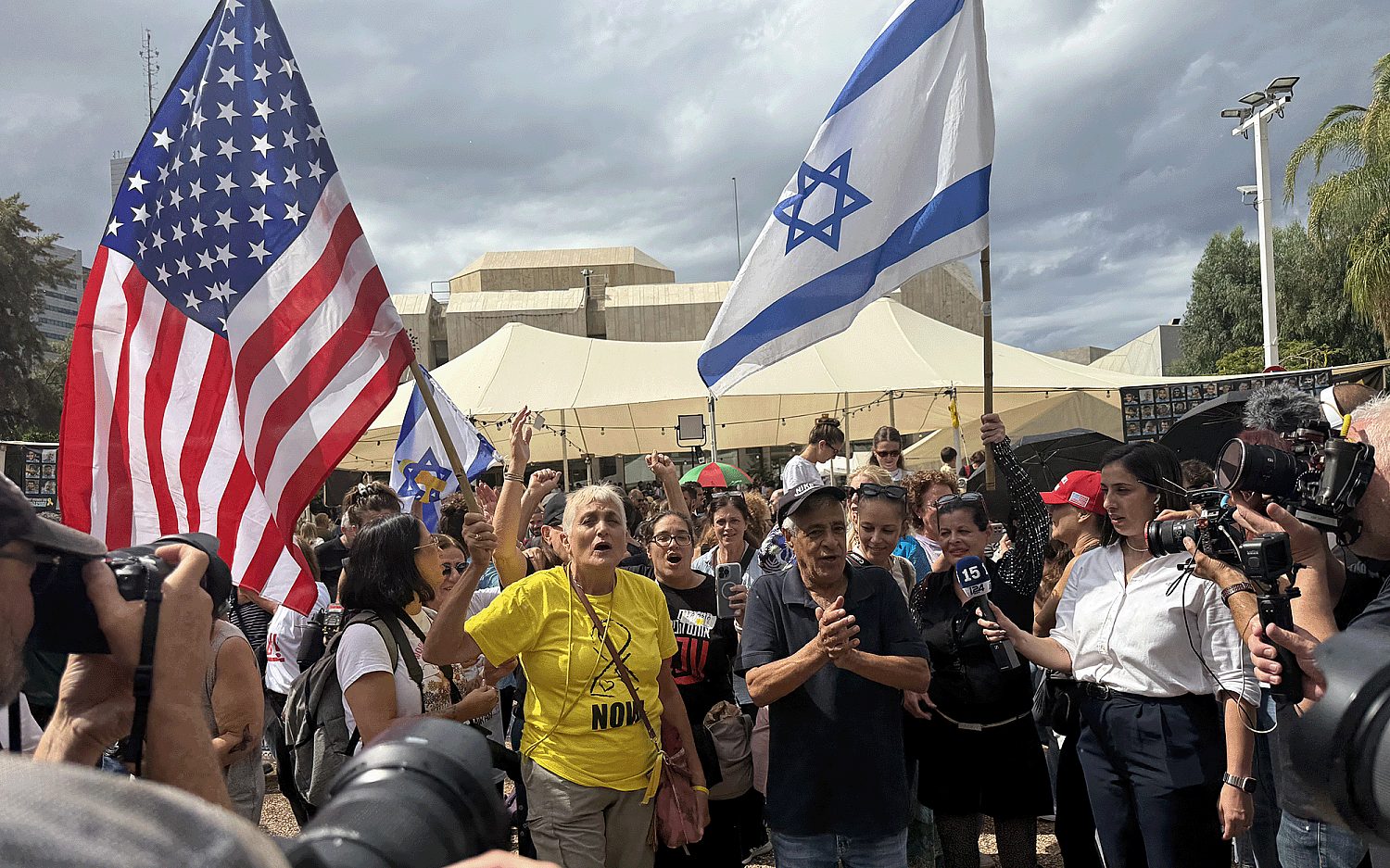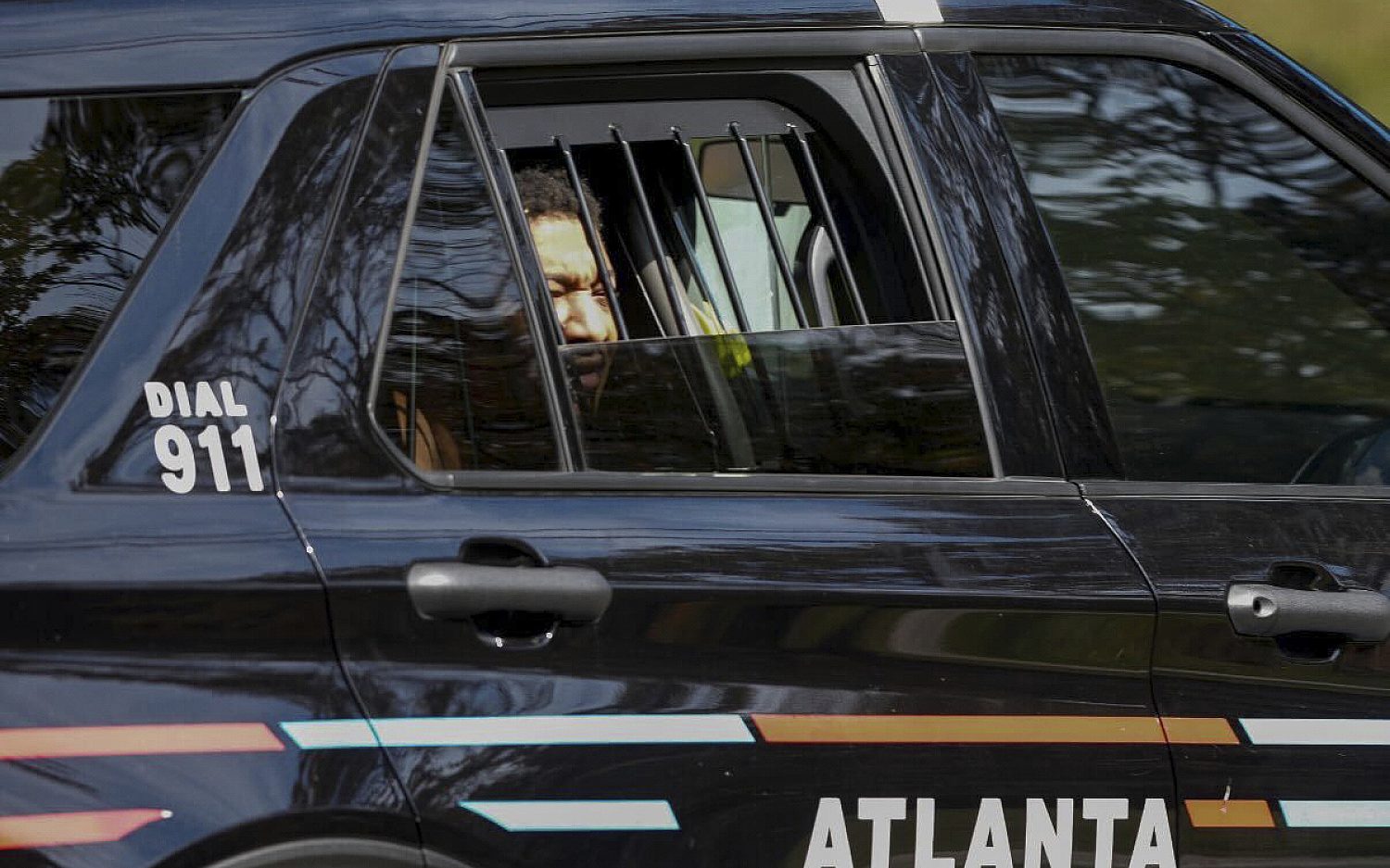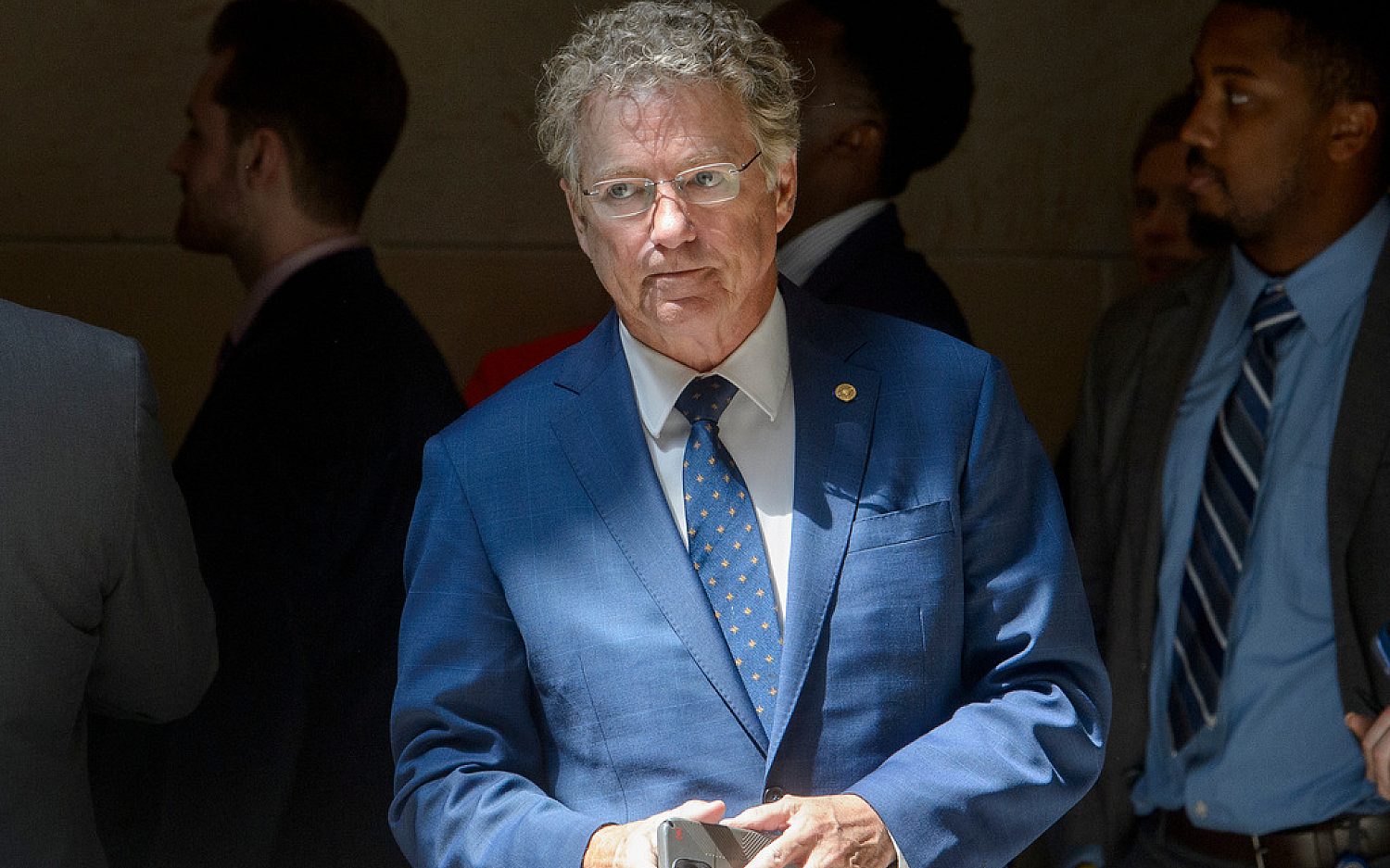'Darkest moment'
The deadliest shooting rampage in U.S.
BLACKSBURG, Va.-Haiyan Cheng remembers the black gun. In the split second the Virginia Tech doctoral student glimpsed Cho Seung-Hui coming out of a classroom in Norris Hall on April 16, one thing stood out: the black-clad young man's long, black gun, clutched in his right hand.
Cheng wasn't supposed to be in Norris Hall that day. The 36-year-old research assistant rarely teaches, but agreed to fill in for an out-of-town professor. On her way to class, she saw Liviu Librescu, a 76-year-old engineering professor, rummaging through his briefcase in the classroom across the hall. Less than an hour later, Librescu, a Romanian-born Holocaust survivor who taught for 20 years at this 135-year-old university in the rolling green hills of the Blue Ridge, was dead. And Cheng was praying for her life.
Two days later, Cheng told WORLD the feeling was surreal: She survived the deadliest shooting spree in U.S. history. The horrific Virginia Tech rampage ended with 23-year-old gunman Cho's suicide, leaving 33 dead, at least 20 wounded, and some 26,000 students grappling with a gut-wrenching grief that is unlikely to end as soon as the international focus on this town of 40,000 recedes.
Cheng is still grappling with her experience: At first she thought she heard construction sounds as she wrote on a blackboard in room 205 of Norris Hall Monday morning. But the loud bangs grew closer-and stranger. When she popped her head out of the classroom's open door, Cho emerged from a nearby classroom, brandishing the gun Cheng can't forget.
Cheng quickly closed the door, telling the 10 students in her classroom to get on the floor. As the sound of gunfire grew louder and more frequent, four male students pushed a long table sideways in front of the door. The four men lay on their stomachs, gripping the table's legs, and hoping the gunman couldn't move the blockade.
He couldn't. Cho rattled the doorknob and rammed the door, but it wouldn't budge. The gunman improvised, firing off two shots through the classroom door. The first shot hit the podium, raining down wood chips and bits of metal on Cheng, who was hunkered below. The second shot went through the window. Then it grew quiet.
Cheng heard a series of clicks, and quickly realized what was happening: Cho was re-loading. A clip hit the floor. The students braced for another round of shooting, but the gunman suddenly left.
Cheng and her students remained on the floor, listening to the gunman fire off rounds elsewhere in the building. "All I hear is the gunshots keep coming," says Cheng. "The gun keeps firing all the time."
Some students with cell phones called 911. Others called their parents. Cheng, who was baptized one year ago (along with her husband and daughter) and is now a member of nearby Grace Covenant Presbyterian Church (PCA), called on God: "Oh God, please make him stop."
Suddenly, the building grew quiet. A few minutes later, a policeman arrived at the door, instructing Cheng's students to put their hands over their heads and run behind him. In the hall, Cheng kept her eyes down, avoiding the carnage in classrooms. But the floor told a grisly story: Cheng tried to avoid wide trails of smeared blood. Now she can't avoid the thought that keeps running through her mind: "If he had come to our room first, we'd all be dead."
Sarah Walker wasn't supposed to be working that day, either. The 28-year-old paramedic works full-time in nearby Radford, but volunteers some 100 hours a month to Blacksburg's volunteer rescue squad. (Like many small towns, Blacksburg's emergency medical officials are all volunteers.)
Walker wasn't scheduled for a volunteer shift on April 16, but came in anyway, hoping to do paperwork. Less than a half hour later, she was in an ambulance, rushing to Norris Hall where she spent the rest of the day caring for patients at the scene.
Walker said more than 11 other emergency medical agencies from three counties rushed to campus to assist with the wounded victims in Norris Hall. Nearly a year ago, the agencies had conducted an annual training drill to prepare for mass injuries in an accident or crime scene. The training paid off, according to Walker: "It ran like it was supposed to run."
Two days later, Walker, who manages PR for the squad, was still running, handling a flood of media inquiries and helping with follow-up work. As for her own grief, she says she hasn't had time to reflect on what happened: "But I know it will come."
It will come for other emergency workers as well, and Walker says she won't be surprised if the squad loses one or two members over the tragedy: "This kind of call is definitely make or break."
The tragedy may prove a make-or-break ordeal for many in the Virginia Tech community as well. In the 48 hours after the shootings, the campus was engulfed in thick grief: Students walked slowly down quiet sidewalks, wiping streaming tears from dazed faces. Others embraced in front of makeshift memorials covered with student signatures and photos of the dead.
They sat on steps and benches, reading profiles of victims in the school newspaper. Profiles like Brian Bluhm's, a post-graduate student in water resources who was ready to defend his thesis and had accepted a job in Baltimore. Friends say Bluhm was a devoted Virginia Tech Hokies fan, but a devoted Christian first.
Mary Read, a freshman from Annandale, Va., played lacrosse, served pizza in the dining hall, and aspired to become an elementary-school teacher. She was also active in Campus Crusade for Christ and attended a Bible study on heaven one week before she died, according to friends.
Daniel Perez Cueva, a junior from Peru, emigrated to the United States in 2000 with his mother and sister, and majored in international studies.
G.V. Loganathan, an engineering professor from India, was so dedicated to his students he sometimes pulled all-nighters with them.
Less than 24 hours after these and dozens more were dead, some 18,000 students and community members formed two half-mile lines around the Cassell Coliseum basketball arena on the south end of campus, waiting for hours in a driving wind for an afternoon convocation attended by President Bush.
Nearly 10,000 quickly filled the arena, and some 8,000 more overflowed onto a nearby football field where a wide-screen television broadcast the event. A hush fell over the huge crowd as family members of the slain filed into the first two rows on the arena floor, many wearing sunglasses and looking down as they walked.
Students held hands and shed tears, and school officials grappled with how to address the monumental grief of thousands: The director of the school's mental health center said licensed grief counselors were standing by. A student leader talked about restoring faith in the "inherent good" of mankind. English professor Nikki Giovanni compared the tragedy's "unfairness" to the unfairness of children dying of AIDS and baby elephants losing their habitats because of man-made development.
Giovanni also led the crowd in a spontaneous school chant: "Let's go, Hokies!" When the cheers died down, the cadet band somberly played the hymn, "Eternal Father, Strong to Save," while President Bush and victims' family members filed out.
The jarring array of coping mechanisms continued Tuesday night at a candlelight vigil where thousands filled the large drill field on the north side of campus, holding long, white candles in paper cups. The cadet band played "Taps" as thousands held their candles high in the chilly night air. When the sober tune ended, the crowd stood still and silent for nearly 10 minutes. Only pockets of muffled sobs punctuated the hush.
Unsure of what to do next, a student started singing the national anthem. Another student started a round of school cheers. Others started a candle wave, and some jiggled their car keys.
In a chapel on the east end of the drill field, J.R. Foster was determined to offer the 175 students packed into wooden pews something largely missing from the grief-filled events of the day: meaning. Foster, the campus minister for Reformed University Fellowship (RUF), led students through a somber, biblical reflection on suffering and redemption while hundreds remained on the drill field outside. The message was simple: "We live in a broken world. We groan in a broken world. We hope in a broken world."
Foster read Psalms full of raw honesty, like Psalm 88: "I am counted among those who go down to the pit; I am a man who has no strength, like one set loose among the dead." Students sang songs of hope, like Psalm 73: "My flesh and my heart may fail, but God is the strength of my heart and my portion forever."
Foster told students that Monday's terrible events displayed "the depth of human sin," and that Christ alone is the remedy for a fallen world.
Outside after the service, Mary Grace Giles said that is what she is clinging to. The junior from Charlottesville, Va., took into her off-campus home two freshman girls who live in the dorm where Cho killed his first two victims: "Right now, we're just literally crying out to God."
Other campus groups are crying out to God as well. Campus Crusade for Christ lost four students connected to its organization, according to director Jim Highfield. Baptist Collegiate Ministries did not immediately confirm reports that it lost two students. Intervarsity Christian Fellowship leader Wes Barts said everyone in his group is accounted for, but several students are dealing with the loss of friends.
Local churches organized prayer meetings, and churches as far away as Maryland sent groups to offer help with grief counseling and support.
Meanwhile, students who visited the drill field chapel the morning after RUF's service found something very different than the night before: pamphlets with "prayers of the ten major world religions." The guide included Buddhist, Christian, Hindu, Muslim, and Jewish prayers, as well as a Native-American prayer that began: "Oh Great Spirit of our Ancestors, I raise my pipe to you."
As the Virginia Tech community grasped for answers to its grief, law enforcement officials grasped to discern motives for Cho's evil acts. Two days after the killings, authorities got a stunning deluge of answers from the gunman himself. After the shootings in West Ambler Johnston Hall, Cho apparently mailed a grotesque packet of photos and a self-made video to NBC before killing 30 others in Norris Hall. NBC received the package on Wednesday morning.
The material included chilling images of Cho brandishing guns in violent poses, a 23-page written statement, and a video in which the killer lashed out at "rich kids" and other unknown subjects, declaring: "You have vandalized my heart, raped my soul, and torched my conscience. . . . Thanks to you I die like Jesus Christ, to inspire generations of the weak and defenseless people."
Haiyan Cheng says she'll never forget how weak and defenseless she felt the morning Cho stalked outside her classroom door. She clings to the hope that "God is in control." And she says she'll never forget how God spared her life. "I was so close," she says, "so close."
An actual newsletter worth subscribing to instead of just a collection of links. —Adam
Sign up to receive The Sift email newsletter each weekday morning for the latest headlines from WORLD’s breaking news team.





Please wait while we load the latest comments...
Comments
Please register, subscribe, or log in to comment on this article.